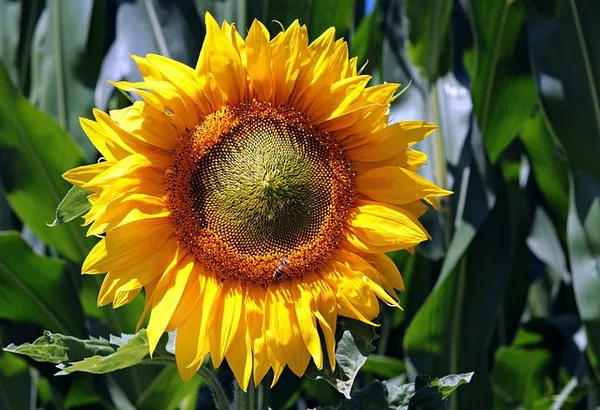Sunflowers, with their vibrant yellow petals and striking appearance, have long been cherished for their beauty and symbolism. Beyond their aesthetic appeal, sunflowers hold a special place in the hearts of many, as they have significant meaning in various cultures and religions. In the realm of Christianity, sunflowers carry a unique and profound symbolism deeply rooted in the Bible. In this article, we will explore what sunflowers represent in the Bible, shedding light on their spiritual significance and the lessons they offer to believers.
The Radiant Beauty of Sunflowers
Before delving into the biblical symbolism of sunflowers, it’s essential to appreciate their physical characteristics. Sunflowers are known for their striking appearance, characterized by tall stems that can reach impressive heights, large, round flowerheads with bright yellow petals surrounding a central disk filled with seeds. This stunning visual display has earned them the name “sunflower” due to their resemblance to the sun.
Biblical Symbolism of Sunflowers
In the Bible, sunflowers are not explicitly mentioned by name, but their symbolism can be derived from various passages and themes. Let’s explore the biblical symbolism of sunflowers:
Radiant Faith and Trust in God:
The most prominent biblical symbolism associated with sunflowers is their representation of faith, trust, and unwavering belief in God. Just as sunflowers turn their faces towards the sun, Christians are encouraged to turn their hearts and minds towards God, seeking His guidance and light in their lives. This act of “following the Son” is a reflection of faith and trust in divine providence.
Proverbs 3:5-6 (NIV) emphasizes this idea: “Trust in the Lord with all your heart and lean not on your own understanding; in all your ways submit to him, and he will make your paths straight.”
Sunflowers, with their heads held high and faces turned toward the sun, serve as a reminder to Christians to keep their faith and trust in God unwavering, even in the face of adversity.
Resurrection and Renewal:
Another significant biblical symbol associated with sunflowers is the concept of resurrection and renewal. Sunflowers have a remarkable ability to track the movement of the sun throughout the day, always facing it. This behavior symbolizes the cyclical nature of life, with the sunflower following the sun’s path from sunrise to sunset.
In Christian theology, the concept of resurrection is central, representing the hope of eternal life through faith in Jesus Christ. Sunflowers, with their daily renewal of turning toward the sun, reflect the hope of resurrection and the promise of new life in Christ.
As 1 Corinthians 15:42-43 (NIV) states: “So will it be with the resurrection of the dead. The body that is sown is perishable, it is raised imperishable; it is sown in dishonor, it is raised in glory.”
Sunflowers can serve as a visual reminder of the Christian belief in the resurrection and the eternal hope found in Christ.
Abundance and Fertility:
Sunflowers are known for their abundant production of seeds, which symbolizes fertility, abundance, and the blessings of God. In the Bible, the concept of fertility and abundance is often linked to God’s provision and care for His people.
Psalm 65:9-13 (NIV) beautifully illustrates this idea: “You care for the land and water it; you enrich it abundantly. The streams of God are filled with water to provide the people with grain, for so you have ordained it.”
Sunflowers, with their bountiful seeds, remind believers of God’s provision and His promise to meet their needs abundantly.
Endurance and Perseverance:
Sunflowers are known for their ability to withstand harsh conditions and thrive in various environments. This resilience symbolizes the endurance and perseverance required in the Christian faith. Believers are called to endure trials and tribulations, trusting in God’s strength to see them through.
James 1:12 (NIV) reflects this sentiment: “Blessed is the one who perseveres under trial because, having stood the test, that person will receive the crown of life that the Lord has promised to those who love him.”
Just as sunflowers endure challenging conditions and continue to grow and bloom, Christians are encouraged to persevere in their faith, trusting in God’s promises.
Conclusion
In the Bible, sunflowers may not be explicitly mentioned, but their symbolism is rich and meaningful. They represent faith, trust, and unwavering belief in God, as well as the hope of resurrection and renewal through Christ. Sunflowers also symbolize abundance, fertility, and God’s provision, while their endurance and perseverance in adverse conditions serve as a reminder of the steadfast faith required of believers.


